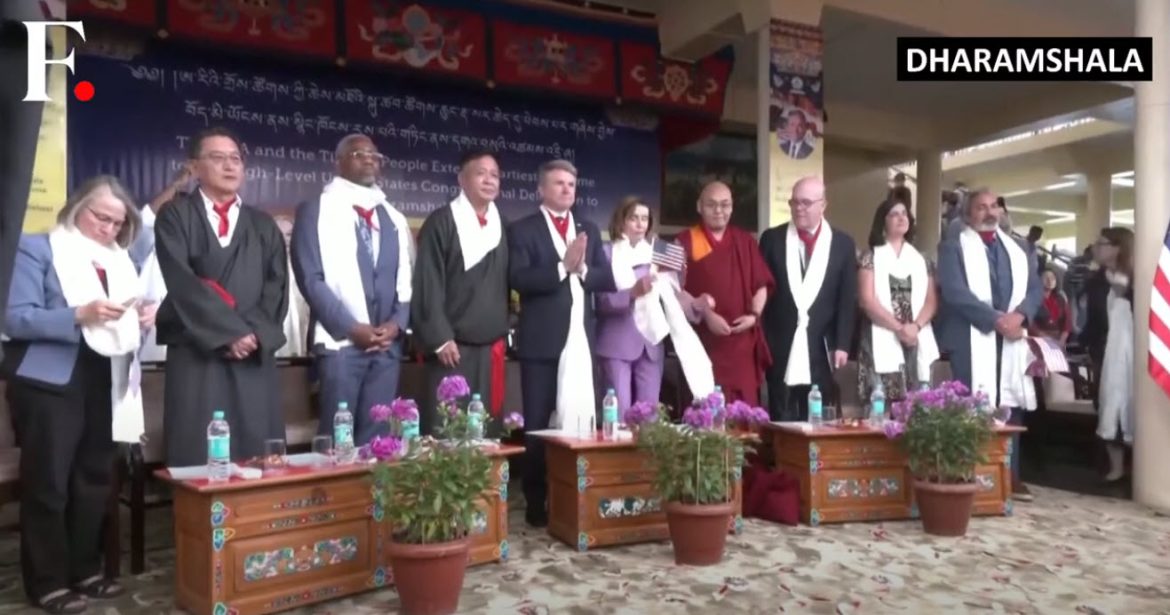A bipartisan delegation of seven U.S. lawmakers is currently in northern India, where they have met with the Dalai Lama at his monastery in the Himalayan town of Dharamshala. This visit comes despite strong objections from Chinese officials, who had urged the delegation to avoid meeting the exiled spiritual leader and have been calling on President Biden not to sign related legislation.
The high-level delegation is led by Republican Representative Michael McCaul and includes notable figures such as former House Speaker Nancy Pelosi, a Democrat. Their visit to the Dalai Lama, a Nobel Peace Prize laureate who fled China in 1959 following a failed uprising against Chinese rule in Tibet, has drawn sharp criticism from Beijing. The Chinese government views the Dalai Lama as a dangerous separatist and has historically opposed any form of engagement with him by foreign officials.
China’s disapproval of this meeting is seen within the broader context of its contentious relationship with the Dalai Lama and ongoing geopolitical tensions with the United States. Relations between Washington and Beijing have been strained due to various issues, including trade disputes that escalated under the Trump administration, the COVID-19 pandemic, and rising military tensions in the South China Sea and Taiwan Strait.
The visit of the U.S. lawmakers to Dharamshala marks a significant diplomatic gesture, underscoring continued American support for the Dalai Lama and his peaceful advocacy for Tibetan autonomy. Representative McCaul emphasized the importance of supporting human rights and religious freedom, core issues symbolized by the Dalai Lama’s struggle.
Nancy Pelosi, a long-time advocate for Tibetan rights, reiterated the U.S. commitment to these values, stating, “Our visit is a reaffirmation of the enduring bond between the American people and the Tibetan people, and a tribute to the Dalai Lama’s lifelong dedication to peace and nonviolence.”
The delegation’s meeting with the Dalai Lama highlights the complexities of U.S.-China relations, especially as Washington seeks to navigate its foreign policy amid calls for both engagement and confrontation with Beijing on various fronts. As the world watches closely, this visit could have significant implications for the ongoing dialogue and diplomatic maneuvers between the two superpowers.



